 W
WAnna Alma-Tadema (1867–1943) was a British artist and suffragette. Alma-Tadema primarily worked with drawings and paintings, creating many portraits and representations of interior scenes, flowers and buildings. She was influenced by her father, Sir Lawrence Alma-Tadema, and showed her works at exhibitions with him and her step-mother, Laura Theresa Alma-Tadema. Her work was shown at national exhibitions, including the Royal Academy of Arts and the 1893 World's Columbian Exposition in Chicago. Anna Alma-Tadema was recognized for her achievements as an artist at the 1893 World's Columbian Exposition in Chicago and the 1889 Paris Exhibition.
 W
WAnne Beechey or Lady Beechey; Anne Phyllis Jessop was a British portrait painter.
 W
WJohn Bradley was a British-born American artist who was active in the New York area in the 1830s and 1840s. He is primarily known for his portrait paintings, which are held in several North American museum collections.
 W
WGeorge Lance Calkin was a British painter.
 W
WCaroline Fleur Osborne, Duchess of Leeds, later Caroline Hobart, Lady Hobart, was a British portraitist and landscape painter. As the third wife of John Osborne, 11th Duke of Leeds, she was the last Duchess of Leeds. She was known professionally as Caroline Leeds.
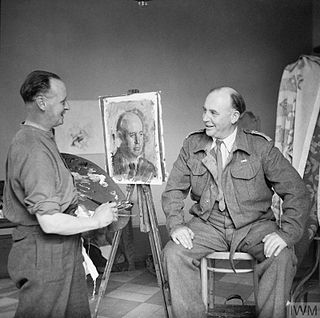 W
WHenry Marvell Carr,, was a successful British landscape and portrait painter who served as a war artist during World War II.
 W
WAlfred Edward Chalon was a Swiss portrait painter. He lived in London where he was noticed by Queen Victoria.
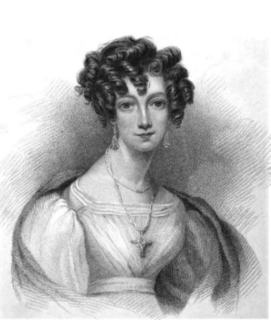 W
WMaria Ann Chalon was a British painter of miniatures. She was Portrait Paintress to his Royal Highness, the Duke of York, and is considered one of the most talented and successful female British miniaturists of the early nineteenth century.
 W
WEdna Clarke Hall was a watercolour artist, etcher, lithographer and draughtsman who is mainly known for her many illustrations to Wuthering Heights by Emily Brontë.
 W
WJohn Maler Collier OBE RP ROI was a leading English painter and writer. He painted in the Pre-Raphaelite style, and was one of the most prominent portrait painters of his generation. Both his marriages were to daughters of Thomas Henry Huxley. He studied painting at the Munich Academy starting in 1875.
 W
WHéléna Arsène Darmesteter, born Héléna Hartog was a British portrait painter.
 W
WJohn Church Dempsey (1802–1877) was an English artist specialising in portraiture. He operated a stationery shop in Bristol, but in 1845 he was declared bankrupt and his effects were seized. After this he became semi-itinerant, travelling as far afield as Norwich and Durham. He painted miniatures and silhouette portraits primarily, as well as the occasional full canvas. In later life he took up photography.
 W
WSamuel Drummond was a British painter, especially prolific in portrait and marine genre painting. His works are on display in the National Portrait Gallery, the National Maritime Museum and the Walker Art Gallery.
 W
WClaire Falconer is an Irish actress and painter who currently works in Ireland, Italy and United States.
 W
WHenry Fuseli was a Swiss painter, draughtsman and writer on art who spent much of his life in Britain. Many of his works, such as The Nightmare, deal with supernatural subject-matter. He painted works for John Boydell's Shakespeare Gallery, and created his own "Milton Gallery". He held the posts of Professor of Painting and Keeper at the Royal Academy. His style had a considerable influence on many younger British artists, including William Blake.
 W
WMark Gertler, born Marks Gertler, was a British painter of figure subjects, portraits and still-life.
 W
WMary Grace was a self-taught professional portrait painter and copyist in the 18th century.
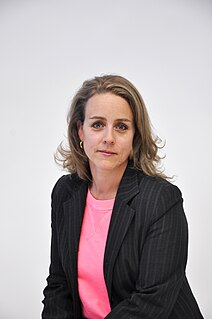 W
WNicola Green is a British portrait painter. Among her subjects have been the Dalai Lama, Barack Obama, and Elle Macpherson.
 W
WJulius Hare RCA was a British artist, painter of portraits and landscapes.
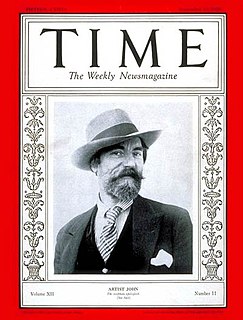 W
WAugustus Edwin John was a Welsh painter, draughtsman, and etcher. For a short time around 1910, he was an important exponent of Post-Impressionism in the United Kingdom. He was the brother of the painter Gwen John.
 W
WPhilip Alexius de László was an Anglo-Hungarian painter known particularly for his portraits of royal and aristocratic personages. In 1900, he married Lucy Guinness of Stillorgan, County Dublin and he became a British subject in 1914.
 W
WThomas McIlworth (c.1720—c.1769?) was a colonial American portraitist, mainly active in the area around Schenectady, New York.
 W
WWilliam Nicholson was a British painter of portraits and other subjects. He was among the founding members of the Scottish Academy of Painting, Sculpture, and Architecture in 1826, and was its first secretary.
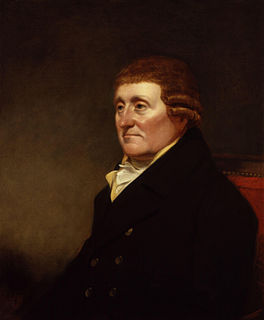 W
WArcher James Oliver was a British painter, principally active as a portraitist.
 W
WWalter William Ouless was a British portrait painter from Jersey. He became an Associate of the Royal Academy (ARA) in 1877 and a full member (RA) in 1881.
 W
WSara Wells Page (1855–1943) was a British female artist, portrait and figurative painter, of Victorian and Edwardian period. During her lifetime she widely exhibited at Parisian salons and British galleries, including at the Royal Academy of Arts. Three of her paintings are in Wolverhampton Art Gallery.
 W
WJohn Partridge was a British artist and portrait painter. Named 'portrait painter-extraordinary' to Queen Victoria, his pictures depict many of the notable figures of his time.
 W
WClaire Phillips is a British portrait artist, whose paintings generally have a social or political narrative. Her portraits of prisoners on death row and children rescued from slave labour have received wide media coverage.
 W
WHenry Wyndham Phillips was a British artist and portrait painter. Although he produced and exhibited a small number of paintings of scriptural subjects early on in his career, he spent most of his life working as a portrait artist. He was born in London, the younger son of the portraitist Thomas Phillips, from whom he received most of his art tuition. When his father died in 1845, he bequeathed Henry all of his painting materials and the use of his painting rooms at 8, George Street, Hanover Square in central London, where Henry is believed to have lived for the rest of his life.
 W
WGeorge Keith Ralph was a British portrait-painter.
 W
WCarl Randall is a British figurative painter, whose work is based on images of modern Japan and London.
 W
WKatherine Read (1723—1778), was a Scottish portrait-painter. She was for some years a fashionable artist in London, working in oils, crayons, and miniature. From 1760 she exhibited almost annually with either the Incorporated Society of Artists, the Free Society of Artist, or the Royal Academy, sending chiefly portraits of ladies and children of the aristocracy, which she painted with much grace and refinement.
 W
WJohanna Spinks is a British-born, Los Angeles-based oil portrait artist whose work hangs in many museums, galleries, and private collections. Spinks is primarily a portrait artist of heirloom, family, corporate, religious, and bridal portraits, but also a landscape and still life painter.
 W
WAlfred Stannard (1806–1889) was an English landscape painter and a member of the Norwich School of painters. His daughter was Eloise Harriet Stannard, a notable artist in her own right.
 W
WThomas Stewardson was a British portrait painter.
 W
WSusanna Wales, Lady Malet was a British artist.
 W
WElizabeth Walker (1800–1876) was a British engraver and portrait-painter.
 W
WFlorence White or Miss F. White was a British portrait and miniature painter.
 W
WWillem Wissing, known in England as William Wissing, was a Dutch portrait artist who worked in England.
 W
WHenry Bryan Ziegler (1798–1874) was a British artist, known as a landscape and portrait painter.